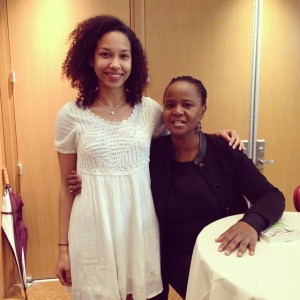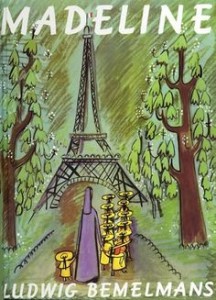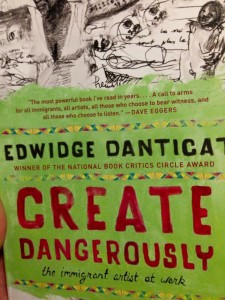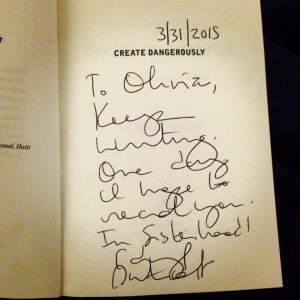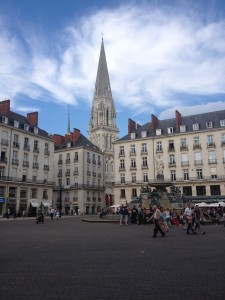Hello, I’m Olivia Perry, a senior and Social Media Assistant for The Admission Office.
I wanted to share my amazing experience last night that was provided to me by this great school!
I was invited by President Ronald Thomas to join him, his wife, Mary, professors, faculty, and students to have dinner with acclaimed Haitian-American writer Edwidge Danticat! As a Creative Writing major, and as someone who read her in a class at Puget Sound, I was very excited to see Ms. Danticat lecture “Create Dangerously”, and to meet her was a bonus!
At dinner, President Thomas opened up the floor to ask Ms. Danticat questions, an opportunity I was quick to take. I first asked when she decided that she wanted to be a writer. She told us that she was given the book Madeline when she was four. When she realized this was a way to tell stories without verbally telling them, she decided that was what she wanted to do.
I later asked if she had any advice for a writing major, a specifically woman of color, and her advice was something that I took to heart. She told me that I just need to write. I should always have a project to work on as leisure. As someone who feels the need to explain herself, a woman of color needs to not be deterred in anyway from what she has chosen to study and create. And as she spoke, she looked right into my eyes, giving me a sense of how genuine she is.
Her lecture, Create Dangerously, named after her 2010 book Create Dangerously: The Immigrant Artist At Work, was not as long as expected but was full of insightful anecdotes and ideas. She spoke of writers becoming the reader and what should and shouldn’t be written about. When she was finished, she answered questions regarding education and politics in Haiti and the Caribbean and shared her excitement for the next generation of, not only Haitian, all up and coming Caribbean writers.
They were selling her books at the lecture and reception, so naturally I bought one and she signed it for me!
Last night was a great event that I would never have experienced if I did not come to this school and become involved around campus. As a senior, I have to say, go to as many lectures as possible! I have gotten to see amazing and well known people, like Junot Diaz and Anis Mojgani, speak in my years here. It is a great opportunity that current and future students should always be taking advantage of!

